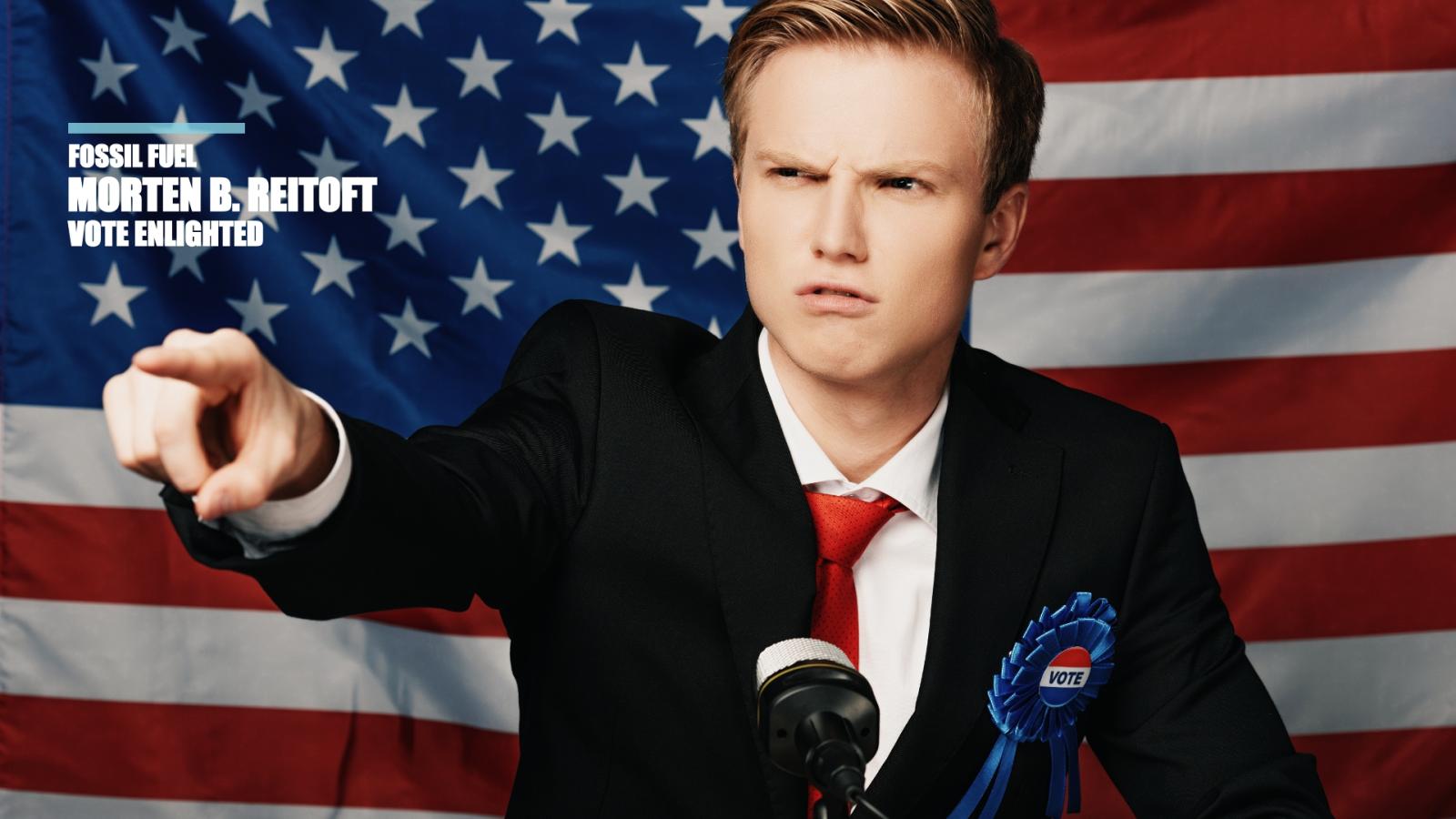
By Editor Morten B. Reitoft
Friends and followers - and in this case - in particular Americans. I was listening to some of your presidential candidate debates as I am currently in the US. I know how sensitive many are about politics, so I won't comment on anything political in this context. I would, however, like to talk about something important: the climate. There are many opinions about climate change and sustainability. Though the IPCC is entirely aligned on the impact of humans on the environment, some still don't believe in the cause and effect. Others, like Bjorn Lomborg from Copenhagen Consensus, acknowledge the human influence on climate but generally speak about priorities. What is more important? How much does it cost to decrease carbon emissions vs. the potential impact? Can the money be used better? Will technology save us, regardless? And so forth.
All of the above are OK to discuss. If we believe in Democracy, we must also use free and open speech to discuss, and science should give us the background to discuss political actions in an enlightened manner. As the climate debate sometimes becomes emotional rather than based on fact, politicians often use the debates to position themselves in directions biased toward their voters. That's not new and something all politicians do all the time.
I decided to write this article because when Republican presidential candidates talk about the fossil fuel industry and the importance of strengthening it to secure economic growth, you have to ask yourself a couple of questions. If global warming is man-made and the impact can lead to warmer climates with whatever consequences it may have - will we accept this and the financial impact that has? Regardless of your political viewpoints, that is not a wrong question to ask yourself because you can't know. I can relate and understand that some believe fossil fuel plays an important role, but then comes the following question to answer.If an economy depends on fossil fuels, what will happen when we run out of fossil fuel resources? The Age of Coal lasted from about 360 to 299 million years ago. Most of these resources are now used, so what? Most scientists and even energy companies recognize that coal, gas, and oil are limited resources, and I have seen various indications that most of them will be used in less than 100 years from now.
There might still be resources that haven't been found or have been too expensive to exploit, but a lower supply will undoubtedly lead to higher energy prices.The political question is, therefore, NOT whether we should base our future wealth on fossil fuel, but what comes next - and that's where I need you to think. Suppose you are conservative and believe in the Republican candidates. What happens to your business when your customers require sustainable products in the future?
As I am not American, I don't have to pick a side - so I will refrain from that, but a rhetoric question. Why is it bad if we can secure economic growth using nuclear, wind, hydro, sun, etc., rather than oil? I have three kids and want them to live in a cleaner and friendlier environment - don't you?"According to the International Energy Agency, at current production rates, oil will run out in 53 years, natural gas in 54 years, and coal in 110 years. If we continue to burn fossil fuels at our current rate, it is estimated that all our fossil fuels will be depleted by 2060."
Delivering clean energy solutions is one of the fastest growing economies, so you can make money on being green!And last quote for today: "Demand for sustainable products is growing, with 95% of consumers trying to live sustainably. 78% of consumers believe sustainability is important. 66% of consumers consider sustainability when making a purchase. 39% of consumers are likely to choose a retailer with a variety of sustainable options. 75% of sustainable products sell better online than in-store.
Consumers' primary reason for purchasing sustainable products is to help the environment. 30% of consumers want to improve the environment. 23% want to reduce production waste, 22% want to reduce their carbon footprint, and 17% are concerned with animal welfare.
Consumers are willing to pay more for sustainable products. 66% of Americans said they would pay more for sustainable products in 2022. 55% of consumers would be willing to pay a little more, and 11% would be willing to pay a lot more."
Tue October 15th
• vigc “ het congres “ ...
VIGC celebrates 25 years of passion and innovation in the Benelux graphic sector.
Fri October 11th
Pack-smart inc. to show...
Pack-Smart will showcase its Delta-X Track and Trace solutions at Pack Expo International 2024 on Booth #W-16075
Emt international welco...
Pecoraro resides in Minnesota and is covering the upper Midwest, West, and Southwest areas of the United States.
Thu September 19th
Hiflow solutions unveil...
HiFlow demonstrates its new tools for label converters and flexo companies
Wed September 18th
Ultimate tech unveils g...
September 4, 2024 – Ultimate Tech announced collaboration with GMG Color
Sun September 15th
Global graphics softwar...
Global Graphics Software and Mark Andy extend partnership to integrate SmartDFE into Digital Series HD press
Thu September 12th
Global graphics softwar...
Global Graphics Software and Dantex announce partnership to integrate SmartDFE into Pico range of UV digital presses
Tue September 10th
New printvis release: e...
New release out this week
Tue September 3rd
Emt international demon...
EMT International is returning to PRINTING United Expo with an end-to-end direct mail digital finishing line on booth C2731, September 10-12
Emt international chame...
EMT International announces its Chameleon RFX roll-to-roll rewinders and unwinders web widths are now designed standard at 23” (584mm).
Subscribe
Subscribe to our INKISH newsletter
Login
New User? Signup
Reset Password
Signup
Existing User? Login here
Login here
Reset Password
Please enter your registered email address. You will recieve a link to reset your password via email.
New User? Signup